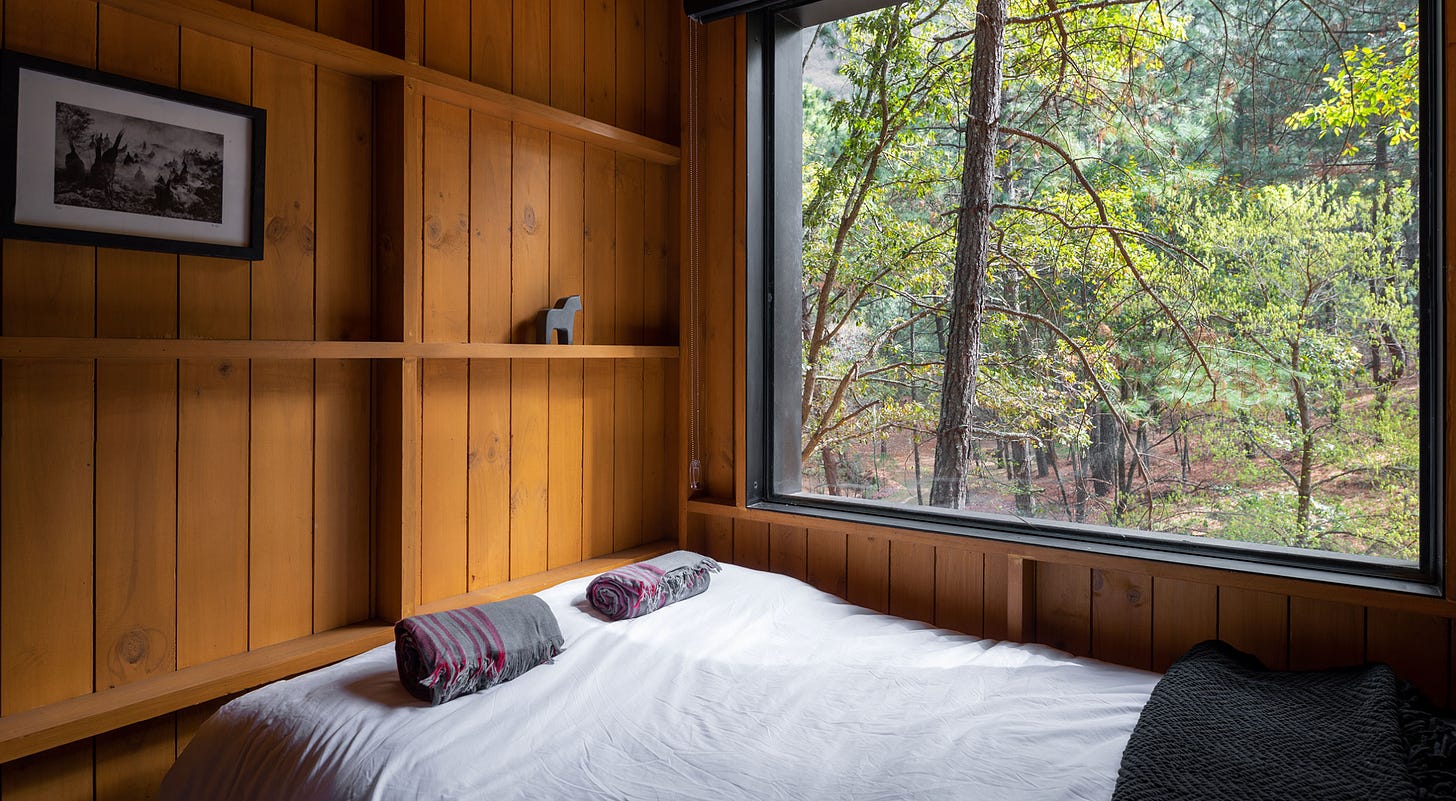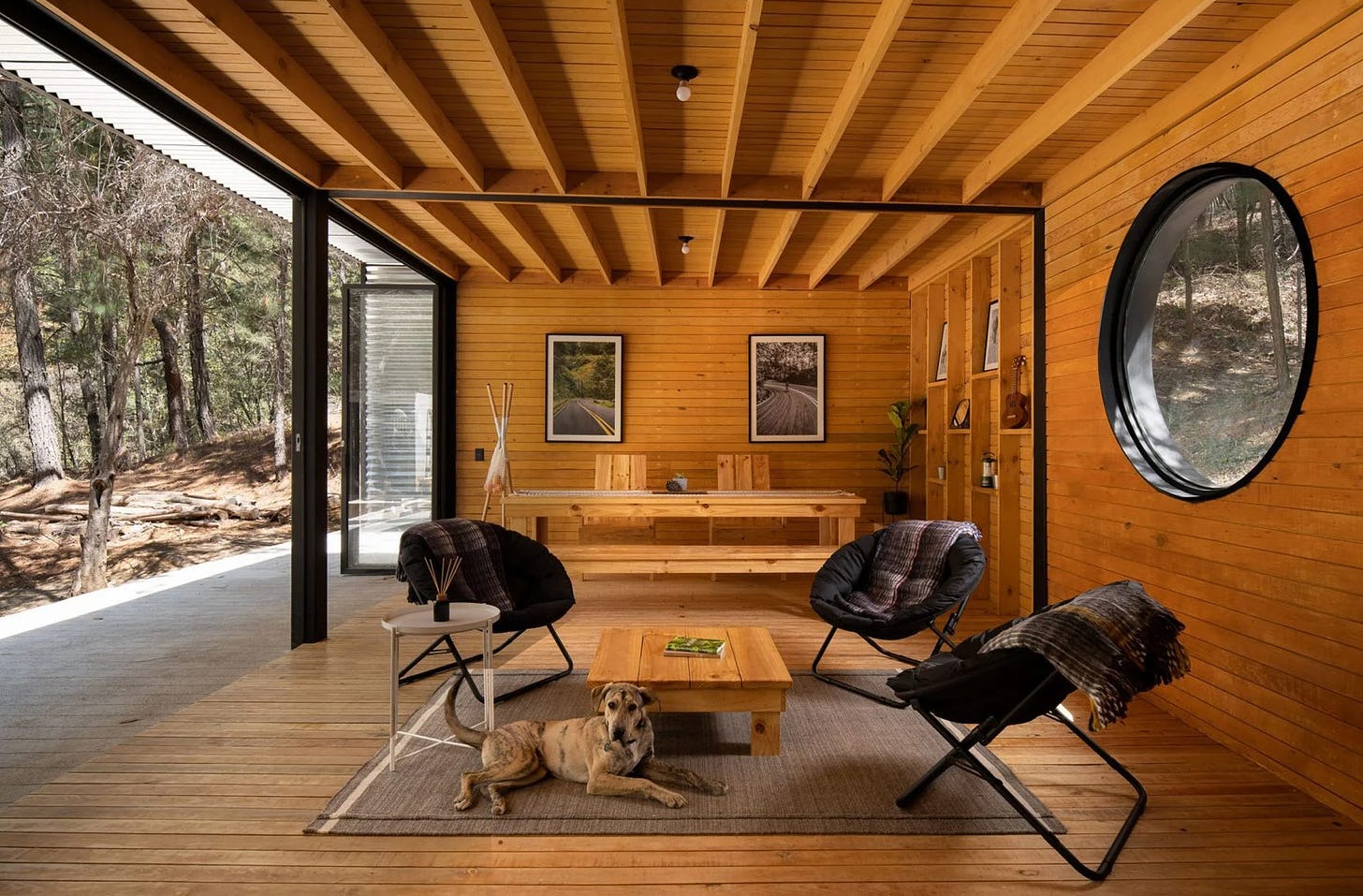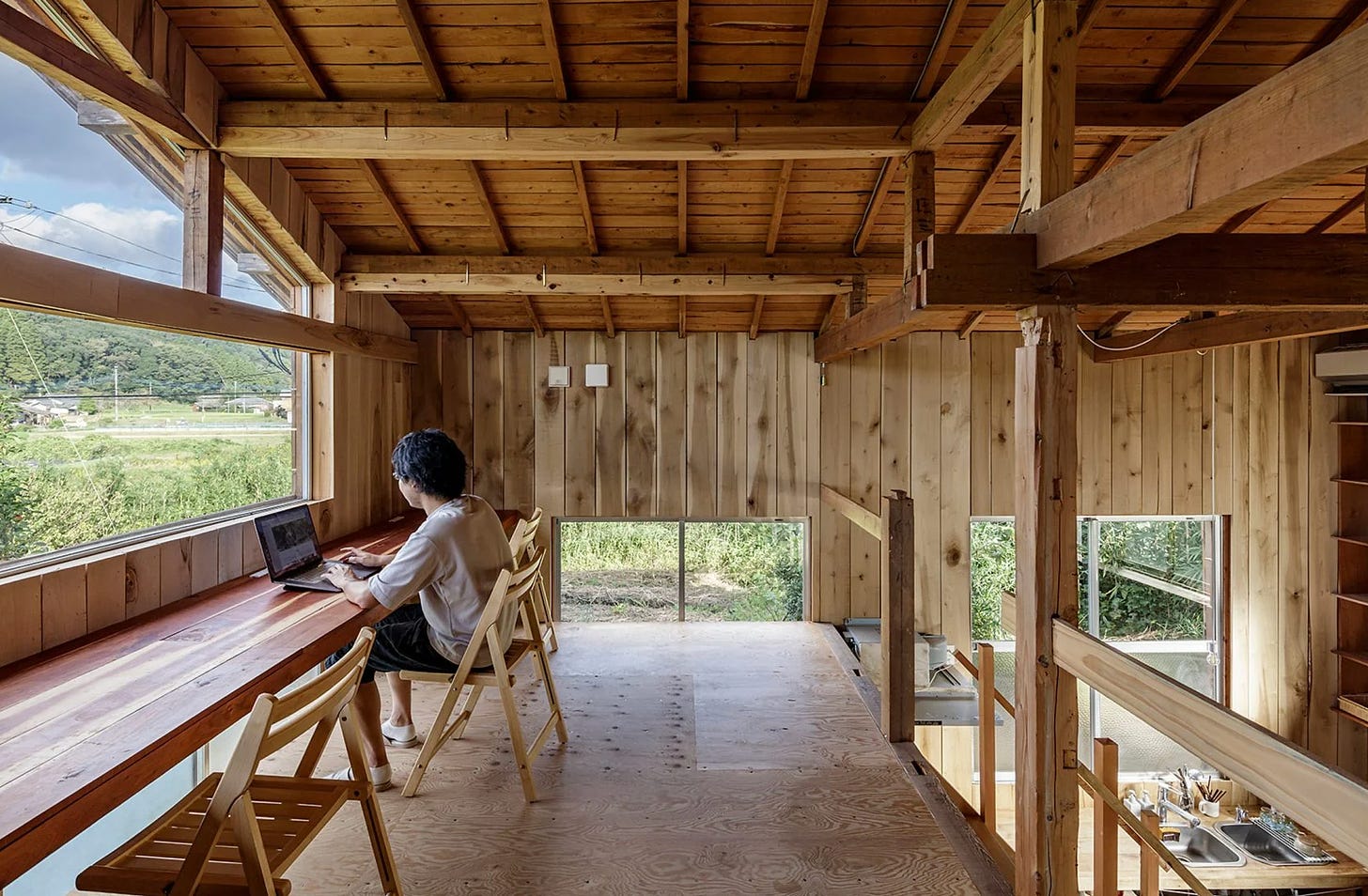Happy Sunday Everyone! After several weeks where my schedule has been busier than ideal, I’m enjoying relaxing as much as possible, walking in nature, and being still this weekend.
Thank you for the lovely feedback recently on The Sunday Studio:
“I always look forward to your Sunday Studio posts. This week this phrase stays with me “Notice the profound differences from the bland, mass-produced ordinariness we accept as normal.” Applicable on so many levels. Thanks!”
“Thanks Libby, I always enjoy your Sunday Studio. Now I’m craving maple butter!”
“Love these newsletters! I would have loved to join a book club but based in Wellington!”
And one of my paid subscribers very kindly shared on LinkedIn:
“Highly recommend checking this out. I rarely post recommendations but as a leader in a post-covid hybrid, technologically driven world with a rapidly changing workforce...I find these well researched perspectives enlightening and liberating. CHECK IT OUT.”
I love writing the Future of Work Studio, thank you to all of you who read and subscribe.
I have several exciting new research projects coming up. My team and I are about to commence research across multiple countries with The World Bank examining their implementation of private offices and biophilic design on work, collaboration, and well-being outcomes.
This week is Research Week at my university, and my team and I are excited to be presenting a free live public event featuring some of our publications and our projects. You can join online if you can’t make it in person and a recording will be sent out afterwards. For more information and the link to register here: How Emerging Technologies are Innovating Workplaces and Urban Environments.
We will discuss two of our publications on the workplace that span multiple disciplines including neuroscience, organisational behaviour, virtual reality, and psychology.
NEW RESEARCH
Wearable sleep technology improves work outcomes the next day
When I speak at conferences, I usually ask the audience to raise their hand if they slept poorly the night before. A majority of hands in the room go up. I then ask them to leave their hand up if sleeping poorly is a common event. Most of the hands stay up.
And while books such as Why We Sleep leave us in no doubt that we should be sleeping more, such messages can be anxiety-inducing for those of us who have trouble sleeping. Some interesting new research has demonstrated the benefits of emerging sleep technologies.
A new study used closed-loop acoustic stimulation can improve employee sleep and subsequent work behaviors.
“Closed loop acoustic stimulation is a technique that is used to enhance slow brain wave patterns during sleep. It involves the use of an algorithm that takes electroencephalography (EEG) data from a sleeping person and plans precisely timed auditory tones. These tones are then played back to the person through headphones in a feedback loop to deepen sleep.
In a 4-week within-subjects field experiment, 81 employees wore headbands during sleep hours in active mode (with closed loop acoustic stimulation) or sham mode with the volume off (control condition). “
The results found that the treatment condition was linked to higher work engagement, task performance, and organisational citizenship behaviour the next day.
Do we like our jobs better when the economy is down?
It turns out that we do. New research with large samples in the US and the UK found that job satisfaction increases during recessions.
“We find support for these predictions across three studies. Study 1 (n = 23,335) utilizes a large cross-sectional survey of American adults collected over four decades and finds that job satisfaction increases during recessions and declines during booms. Study 2 (n = 12,859) replicates this result using a large longitudinal survey of British adults and finds that job satisfaction rises and falls with the unemployment rate even within the same people. Finally, Study 3 (n = 512) uses an experimental design and finds that the relationship between economic conditions and job satisfaction is mediated by the reduced salience of alternative jobs. While scholars have long recognized that job satisfaction is affected by situational features inside organizations, our findings suggest that conditions outside the workplace can also influence how people think about and evaluate their jobs.”
EXPERIENCE
This space in Nuevo Leon in Mexico looks like the perfect way to experience the beauty of the forest without sleeping on an air mattress. I adore Mexico and will be adding this to my list.
Run by The Outlands, the company also offers a range of adventure experiences in Central and South America, all of which sound vastly better than a team-building experience I recently uncovered where Survivor was adapted into an office setting.
The competitions included filing, fixing the office coffee machine, and a keyboard typing race. Really. Hear more about this below in the latest episode of The Floorplan.
LISTEN
Episode 4 of The Floorplan is out now. You can listen here.
Why do we work in teams? Do they work? Is team bonding really necessary? How does the way we design work and our workspaces influence the creativity and performance of teams?
In this episode, Matt and I look at what the research says about 'teamwork making the dream work'.
World-leading researcher on creativity and teams Professor Markus Baer from Washington University in St. Louis joins the podcast to share his insights from many years of research into creativity, innovation, motivation, and teams.
Markus and I discuss how different spaces affect creativity, what supports high-performing teams, why daydreaming at work is good, how micro-management harms innovation, and how getting off the beaten path leads to more creative outcomes.
Team Anywhere - Redefining the Office
Continuing on the team theme, I joined Mitch Simon on his Team Anywhere podcast to talk about redefining the office.
We chat about the importance of human-centric leadership in remote work and office environments. And we explore how our physical environment impacts productivity, collaboration, and well-being, emphasizing the need for diverse and flexible workspaces. Listen here.
READ
With the emphasis on getting back to the office, being forced to socialise with work colleagues, and being seen to be fun is on the rise. I found it refreshing to read this excellent and amusing article in The New Yorker - The Right Not to be Fun at Work.
“I have a friend who works for a company that requires her to share a hotel room with a colleague when she travels on business. This is bad under any circumstances. It is especially bad if you’re sick, pregnant, congested, flatulent, somnambulant; if you’re a night owl or an early bird; if you have a medical condition necessitating privacy; or if you just prefer to spend your precious downtime bingeing “Love Is Blind” in a judgment-free zone. Being forced to see a co-worker in a towel or listen to her snore ought to be illegal.
Thankfully, there’s France, home of the right to ignore your e-mail on the weekend and the right not to eat at your desk. In another win for workplace dignity, one of the nation’s highest courts recently suggested that businesses cannot force their employees to participate in office parties and other supposedly enjoyable activities. The case dates back to 2015, when a man, known as Monsieur T., sued his former employer, the Paris-based management-consulting firm Cubik Partners, for wrongful termination. Monsieur T.’s demand for reinstatement was dismissed in labor court. An appeals court then found that Cubik had not erred in letting him go for, among other things, failing to take part in a workplace culture that the company calls, in a bit of corporate Franglish, “fun & pro.” In its recent decision, however, the high court overturned that ruling. Citing the European Convention on Human Rights and the French labor code, the court held that Monsieur T. had no obligation to attend retreats and Friday apéros. In fact, his bosses’ expectation that he join in violated his freedom of expression. Call it, as Arte did, “the right not to be fun.””
And while being forced to have fun is indeed unlikely to make us happy at work, this article in The Atlantic by Harvard Professor Arthur Brooks provides an interesting snapshot into decades of research on the question of what makes us happy in our jobs.
“To be happy at work, you don’t have to hold a fascinating job that represents the pinnacle of your educational achievement or the most prestigious use of your “potential,” and you don’t have to make a lot of money. What matters is not so much the “what” of a job, but more the “who” and the “why”: Job satisfaction comes from people, values, and a sense of accomplishment.”
Read it here.
INSPIRATION/IDEAS TO TRY
Workspace Reinvention in Japan
A vacant house in Ichihara City in Japan has been transformed into a workspace by studio Kurosawa Kawara-Ten. Local and recycled materials were used to retain features of the house, which has workspaces over two levels as well as the spaces to cook and dine.
On Feeling Behind, Getting off the Beaten Path, and Being a Dark Horse
The most read piece on the Future of Work Studio surprised me. When I wrote On Being Behind and Never Enough, I shared what I struggle with. I talked about how modern work and social media can make us feel we aren’t doing enough, no matter what we have achieved.
I’m writing a new piece to come out here next week on the best career advice that I didn’t take, and why I’m glad I didn’t. It’s sort of a continuation of the being behind piece. I’m writing about how you can build a thread with all the things you’ve done, the ones you are good at, and the areas that you love to create a career or business that excites you.
The Dark Horse Project
Before you start feeling bad about pursuing multiple paths, jobs, and ideas that perhaps haven’t got you where you want to be yet, you can take heart from research by Todd Rose, Director of Harvard’s Mind, Brain, and Education program, and computational neuroscientist Ogi Ogas that came to be known as The Dark Horse Project.
“Rose and Ogas studied a broad spectrum of successful and fulfilled individuals who had followed an unusually winding career path. They were surprised to find that forty-five of the first fifty subjects detailed professional paths so sinuous that they expressed embarrassment at jumping from thing to thing in their career. Ogas added that “they had been told that getting off their initial path was so risky. But actually we should all understand, this is not weird, it’s the norm.” From Range by David Epstein.
Experiment with something that gets you off the beaten path
This week, if you are grappling with what to do next in your career, where you should move to or vacation, or trying to be more creative in general, try using your non-typical problem-solving approach.
Markus Baer who was on the podcast this week and his colleagues undertook a study comparing the effects of rational versus intuitive problem-solving on creativity.
“We argued that the relative effectiveness of these approaches depends upon an individual's typical thinking style such that individuals will be more creative when they adopt a problem-solving approach that differs from their typical style of thinking (e.g., individuals who avoid rational thinking will exhibit higher creativity when they are instructed to rely on rational problem solving). In support of our hypothesis, we found that problem-solving approach and individual differences in thinking style interact such that creativity is highest when individuals use a nontypical problem-solving approach.”
Not doing things the same way we always do them really does have benefits. Getting off the beaten path can change our thinking and create new pathways in our brains.
Chocolate that is good for you (really)
Last week’s Sunday Studio received a lot of love for the maple butter. This week, I’m recommending you try Loco Love - decadent dark chocolate infused with brain and mood-enhancing adaptogenic herbs.
They are ridiculously good.
And even good for you.







